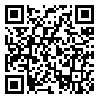Thu, Feb 19, 2026
[Archive]
Volume 39, Issue 1 (1-2025)
Med J Islam Repub Iran 2025 |
Back to browse issues page
Download citation:
BibTeX | RIS | EndNote | Medlars | ProCite | Reference Manager | RefWorks
Send citation to:



BibTeX | RIS | EndNote | Medlars | ProCite | Reference Manager | RefWorks
Send citation to:
Sohrabi Z, Ghasemi S, Nouri Khaneghah Z, Barry A, Zhianifard A, Nosrati S. A Scoping Review of Quasi-experimental Studies on Simulation-Based Learning in Medical Education: Trends and Insights from the Last Decade. Med J Islam Repub Iran 2025; 39 (1) :576-601
URL: http://mjiri.iums.ac.ir/article-1-9590-en.html
URL: http://mjiri.iums.ac.ir/article-1-9590-en.html
Zohreh Sohrabi 

 , Samane Ghasemi
, Samane Ghasemi 

 , Zahra Nouri Khaneghah
, Zahra Nouri Khaneghah 

 , Azizeh Barry
, Azizeh Barry 

 , Akram Zhianifard
, Akram Zhianifard 

 , Sohrab Nosrati
, Sohrab Nosrati 




 , Samane Ghasemi
, Samane Ghasemi 

 , Zahra Nouri Khaneghah
, Zahra Nouri Khaneghah 

 , Azizeh Barry
, Azizeh Barry 

 , Akram Zhianifard
, Akram Zhianifard 

 , Sohrab Nosrati
, Sohrab Nosrati 


Center for Educational Research in Medical Sciences, Department of Medical Education, School of Medicine, Iran University of Medical Sciences, Tehran, Iran , nosrati.so@iums.ac.ir
Abstract: (898 Views)
Background: Simulation-based learning (SBL) has become a key tool in medical education for developing practical skills and clinical decision-making. Despite the widespread use of this method, there remains a lack of comprehensive reviews of quasi-experimental studies in this area. Therefore, this study aimed to survey the trends and insights from quasi-experimental studies conducted over the past decade on simulation-based learning in medical education.
Methods: This scoping review was conducted using the framework outlined by Arksey and O'Malley, involving 5 key stages: (1) defining the research questions; (2) identifying relevant studies; (3) selecting studies; (4) extracting relevant data; and (5) summarizing and synthesizing the extracted data. Several databases were used to search for articles. These databases include PubMed, Scopus, Web of Science (WOS), ERIC, and Emerald. The search period spanned from January 1, 2014, to December 31, 2024.
Results: In this scoping review, 3052 articles were retrieved. After screening and applying the inclusion and exclusion criteria, 95 quasi-experimental articles were selected for final analysis. Basic medical education dominates research focus, and surgical training and obstetric care had the lowest concentration of studies. Simulation effectiveness is measured via Kirkpatrick's hierarchy, showing improvements in clinical skills and confidence.
Conclusion: This scoping review demonstrated that simulation-based learning is a growing educational method in medical education, contributing to the development of practical and clinical skills. The findings of this study can be beneficial for policymakers, educators, and researchers in medical education to enhance educational programs and utilize this method more effectively. It is recommended that adequate resources and proper training be allocated to maximize the effectiveness of simulation-based learning for both educators and students.
Methods: This scoping review was conducted using the framework outlined by Arksey and O'Malley, involving 5 key stages: (1) defining the research questions; (2) identifying relevant studies; (3) selecting studies; (4) extracting relevant data; and (5) summarizing and synthesizing the extracted data. Several databases were used to search for articles. These databases include PubMed, Scopus, Web of Science (WOS), ERIC, and Emerald. The search period spanned from January 1, 2014, to December 31, 2024.
Results: In this scoping review, 3052 articles were retrieved. After screening and applying the inclusion and exclusion criteria, 95 quasi-experimental articles were selected for final analysis. Basic medical education dominates research focus, and surgical training and obstetric care had the lowest concentration of studies. Simulation effectiveness is measured via Kirkpatrick's hierarchy, showing improvements in clinical skills and confidence.
Conclusion: This scoping review demonstrated that simulation-based learning is a growing educational method in medical education, contributing to the development of practical and clinical skills. The findings of this study can be beneficial for policymakers, educators, and researchers in medical education to enhance educational programs and utilize this method more effectively. It is recommended that adequate resources and proper training be allocated to maximize the effectiveness of simulation-based learning for both educators and students.
Keywords: Simulation-Based Learning, Medical Education, Quasi-experimental Studies, Medical Simulation
Type of Study: Original Research |
Subject:
Medical Education
Send email to the article author
| Rights and permissions | |
 |
This work is licensed under a Creative Commons Attribution-NonCommercial 4.0 International License. |





